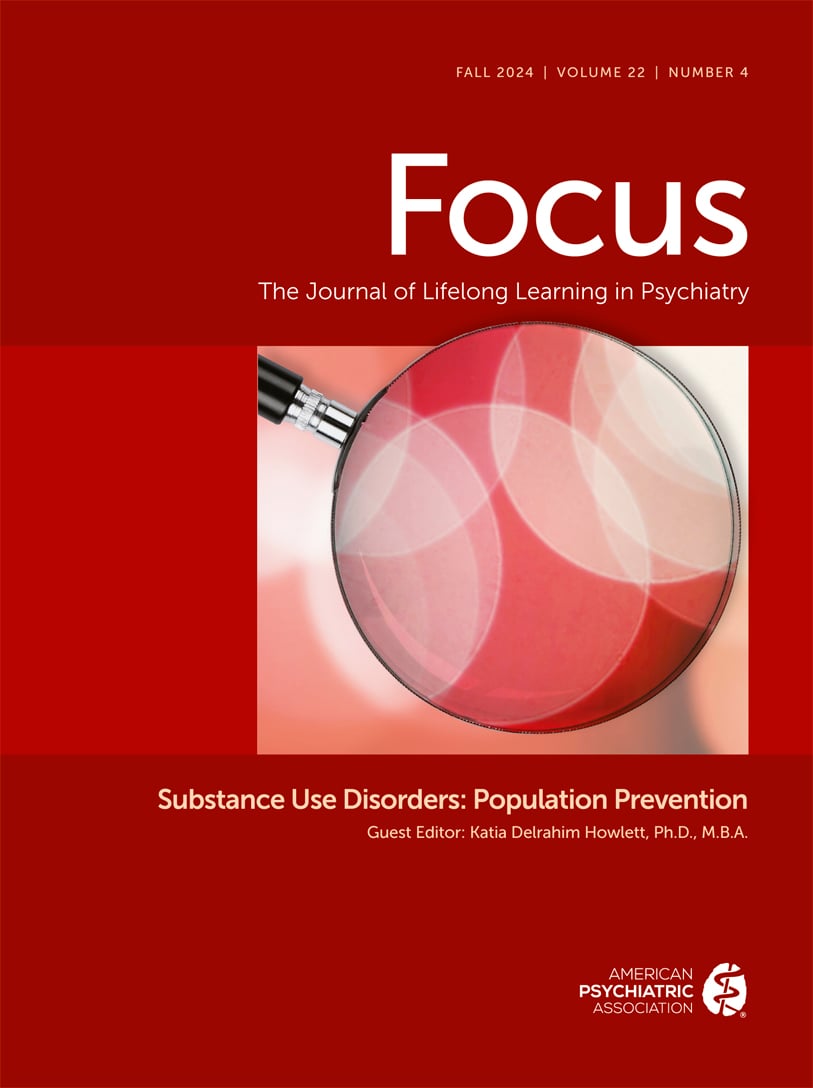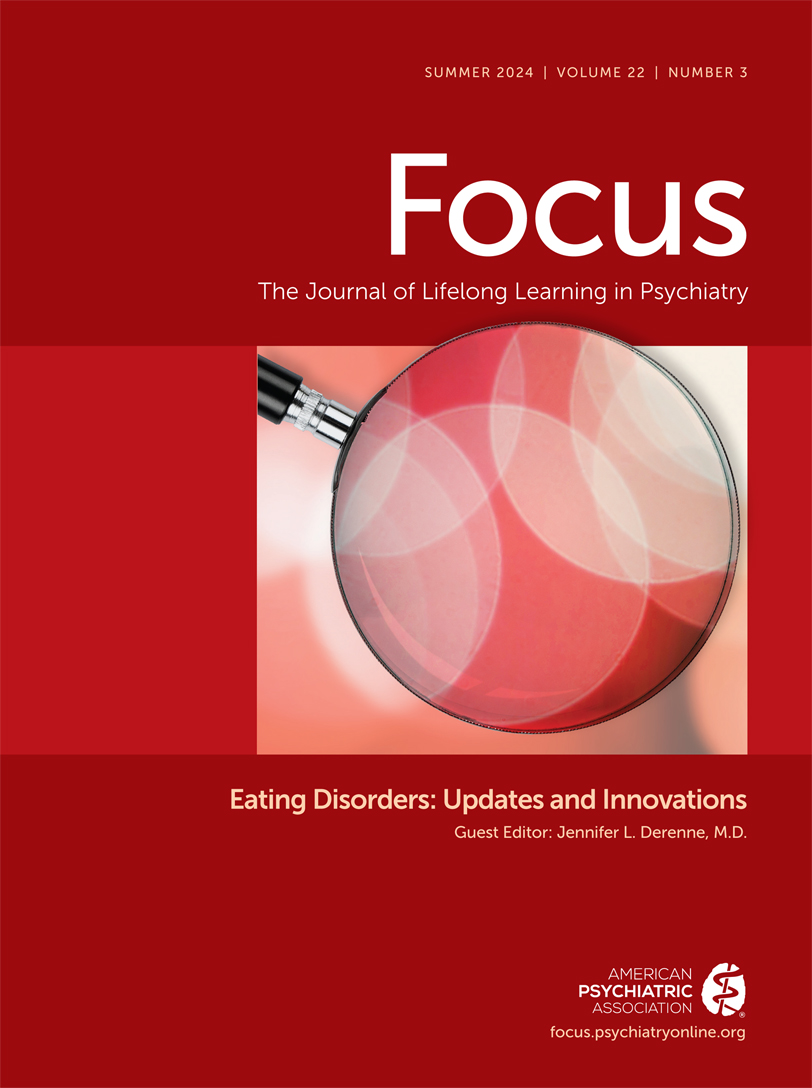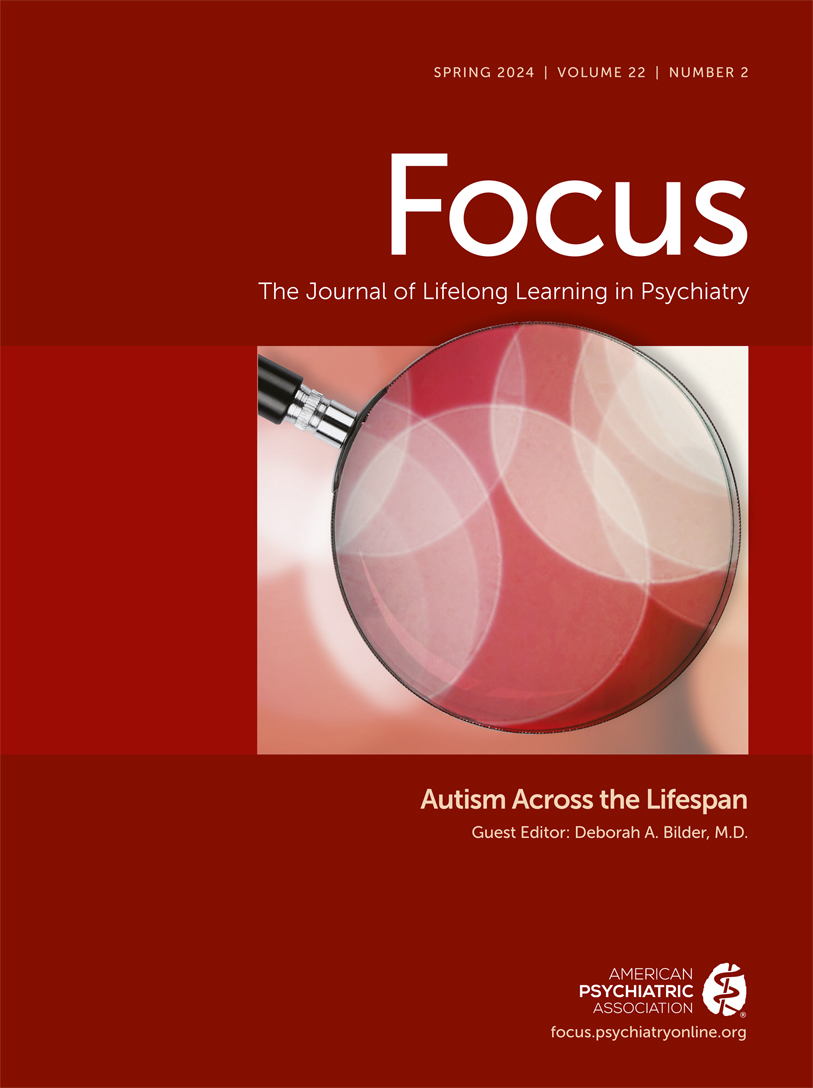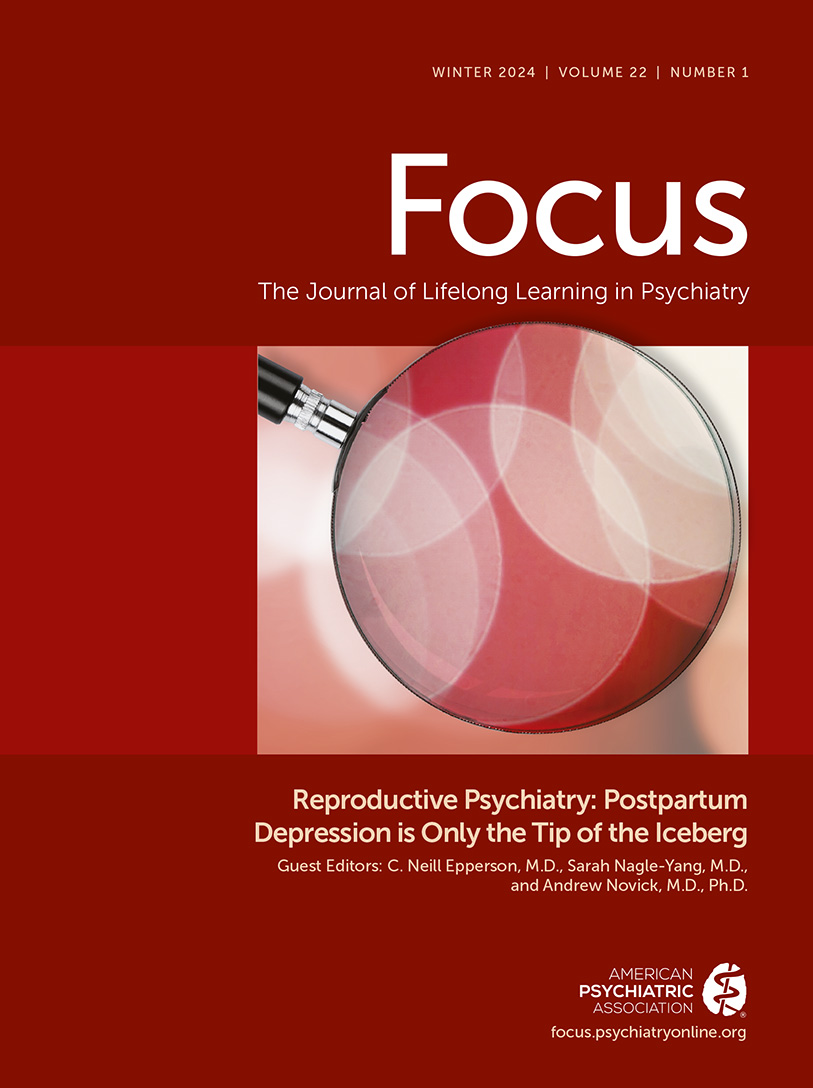Focus
- Volume 17
- Number 1
- January 2019
From the Guest Editor
Reviews
Publication date: 01 January 2019
Pages2–7Clinical psychiatry has not historically expected practitioners to learn the basic science of psychiatric illness. Despite wide recognition that all effective psychiatric treatments have neurophysiological mechanisms, the field has struggled to integrate ...
https://doi.org/10.1176/appi.focus.20180033Publication date: 01 January 2019
Pages8–12Ketamine has been shown to provide relief for typical and atypical depressive symptoms, anxiety in the context of depression, and acute suicidal ideation and behaviors. Evidence also suggests that repeated doses of intranasal ketamine may be effective ...
https://doi.org/10.1176/appi.focus.20180030Publication date: 01 January 2019
Pages13–17The contemporary use of ECT for treating certain mental and neurologic disorders is discussed. Two experimental forms of seizure therapy that are related to ECT may hold promise for the future: focal electrically administered seizure therapy (FEAST) and ...
https://doi.org/10.1176/appi.focus.20180023Publication date: 01 January 2019
Pages18–29This review synthesizes information about application of four noninvasive neuromodulation therapies (e.g., electroconvulsive therapy, magnetic seizure therapy) in treating major depressive disorder. The focus is on antidepressant effects, neurocognitive ...
https://doi.org/10.1176/appi.focus.20180031Ask the Expert
Communication Commentary
Ethics Commentary
Patient Management Exercise
21st-Century Psychiatrist
Publication date: 01 January 2019
Pages44–49Transcranial direct current stimulation is emerging as a potential treatment for a host of neuropsychiatric disorders, yet study results are mixed. This review covers tDCS essentials for psychiatric clinicians and trainees, including guidelines on tDCS ...
https://doi.org/10.1176/appi.focus.20180029Bibliography
Abstracts
Influential Publications
Publication date: 01 January 2019
Pages55–65Objective: The authors compared the efficacy of standard-of-care treatment plus intranasal esketamine or placebo for rapid reduction of symptoms of major depression, including suicidality, among individuals at imminent suicide risk. Method: In a double-blind,...
https://doi.org/10.1176/appi.focus.17105Publication date: 01 January 2019
Pages66–72The predisposition to neuropsychiatric disease involves a complex, polygenic, and pleiotropic genetic architecture. However, little is known about how genetic variants impart brain dysfunction or pathology. We used transcriptomic profiling as a ...
https://doi.org/10.1176/appi.focus.17103Publication date: 01 January 2019
Pages76–82Objective: Up to 70% of patients with treatment-resistant schizophrenia do not respond to clozapine. Pharmacological augmentation to clozapine has been studied with unimpressive results. The authors examined the use of ECT as an augmentation to clozapine ...
https://doi.org/10.1176/appi.focus.17106Past Issues
View Issues Archive
Vol. 22 | No. 4

Vol. 22 | No. 3

Vol. 22 | No. 2
